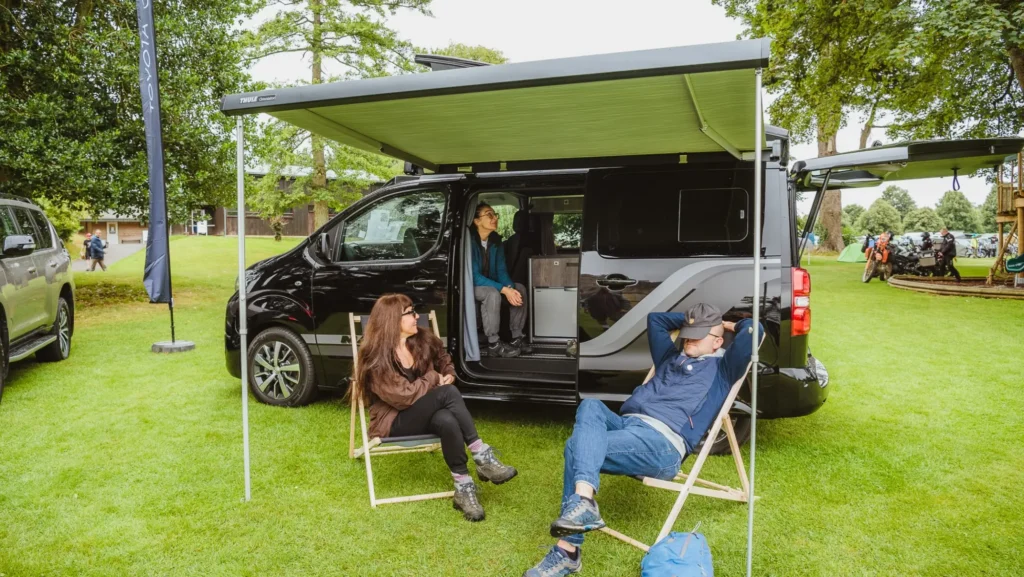Some people sell their RVs privately, which is a fun and inexpensive way to get started in RVing. But it also has its own set of issues and things to think about. When you buy something privately instead of from a dealer, you need to do more research to make sure you’re making a good investment. If you’re looking to buy an RV from a private seller, here are some things to keep in mind.
Learn more
Before you start looking at RVs, it’s important to do your research. Learn about the different models, what makes them unique, and their value on the market. Pricing and depreciation information can be found on websites like NADA Guides and Kelley Blue Book. Join online forums and social media groups about living in a van and ask for advice from people who have done it before. This research will help you decide what to do and prevent you from overpaying.
Check the seller’s credibility
Before you do business with a private seller, it’s important to make sure they’re authentic. Make sure the seller has a valid title and is free of any liens. When asking for ID, make sure the name on the ID matches the name on the job title. Be wary of sellers who won’t give you personal information or who want to rush the transaction. If something doesn’t feel right, go with your gut.
Inspect the RV very carefully
When buying a used RV, it’s important to inspect it thoroughly. Start with a quick look at the exterior and interior. Check for rust, dents, and other damage. Make sure the tires, windows, and seals are in good condition. Inside, look for signs of wear on furniture, cabinets, and floors. Make sure all plumbing, electrical systems, and appliances are in good working order by testing them. Don’t forget to check the transmission, engine, and other mechanical components. If you’re unsure whether your vehicle can be appraised, it’s best to hire a professional mechanic to perform a pre-purchase inspection.
Check out the history of the vehicle
Ask the seller for the vehicle identification number (VIN) of the van, which you can then use to look up its history. Services like Carfax and AutoCheck can provide you with a wealth of information about your vehicle’s history, including accident records, title issues, and maintenance. This information can help you recognize potential red flags and make an informed choice. Be wary of trucks that have been involved in serious accidents or have had a large number of owners in a short period of time.
Drive your RV around
To know how an RV performs, you should take it for a test drive. Drive the truck on different road surfaces, including highways, city streets, and rough terrain. Pay close attention to how the truck moves, accelerates, and decelerates. Pay attention to any strange noises coming from the engine or suspension. Check that the transmission shifts smoothly and the brakes are working properly. Check the steering and how it is adjusted. A thorough test drive can reveal problems that aren’t visible when the vehicle is sitting still.
Check maintenance records
When you buy something, ask the seller for service and maintenance records. Regular maintenance on your vehicle is a good sign that it has been well cared for. Check to see if the oil has been changed, tires rotated, and other routine maintenance has been performed. Check to see if important components, such as the engine and transmission, have been serviced at the right time. A well-maintained RV is more reliable and will last longer.
Speaking of price
Once you have completed all of your research and inspections, it is time to negotiate a price. Use the information you gather to make your offer more attractive. Be honest about any problems you find and how they will reduce its value. If the seller is unwilling to negotiate or the price is too high, be prepared to walk away. Remember that there are many RVs out there and it is better to wait for the right one than to spend too much money.
Know the law
Make sure that all legal aspects of the transaction are handled correctly. Make sure the seller is the legal owner and that the title is clear. Fill out the bill of sale with the purchase price, vehicle information, and signatures of the buyer and seller. Know your state’s rules regarding transferring titles and registering cars. In some states, the title cannot be transferred until the car has passed a safety inspection or smog test. If necessary, obtain a temporary registration for the truck. This is
After the purchase
When you buy from a private seller, you run the risk of getting scammed. Be wary of offers that seem too good to be true or sellers who want you to pay quickly. Don’t pay until you’ve thoroughly inspected the truck and confirmed the seller’s credentials. Don’t carry large amounts of cash. Instead, use a secure payment method, such as a check or bank transfer. If possible, complete the transaction in a safe place, such as a bank.
Final Thoughts
If you’re careful and do your research, buying an RV from a private seller can be a rewarding experience. You can reduce your risk and make an informed decision by doing your homework, carefully inspecting the vehicle, and making sure the seller is trustworthy. Remember to negotiate, know the laws, and calculate extra fees. With some forethought and patience, you can find the perfect RV for your adventure.



